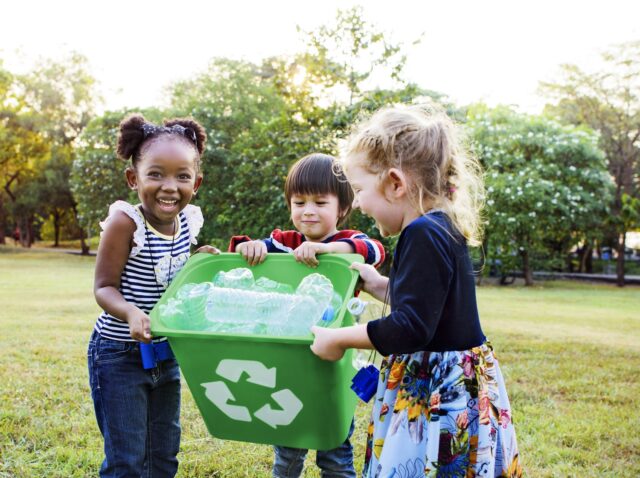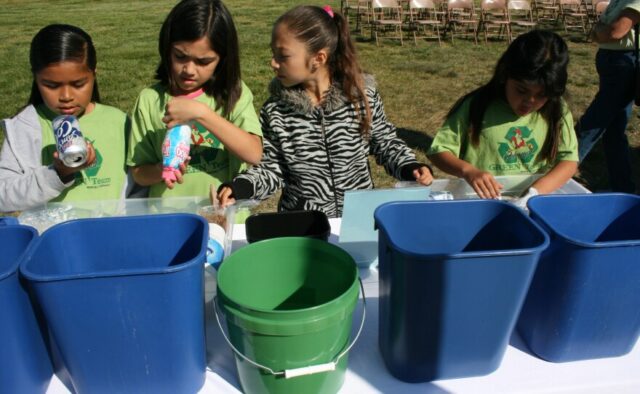
Recycling is one of the most fulfilling community activities that neighborhoods can participate in. The process can bring households together as they try to pitch in and make the initiative as successful as possible. All it takes is for someone to spearhead the idea, and people will undoubtedly follow, especially if they’re encouraged and motivated enough with the right materials.
Neighborhoods that recycle need to partner with a trustworthy recycling facility to provide them with terrific deals. If your neighborhood is looking for one, you can click here to find out how they can help your community. Their expertise and experience will help people succeed in recycling as they have the right tools and connections.
Here are some tips to improve community recycling initiatives.
1. Make Recycling Bins Visible
One of the best ways to ensure that recycling will be done in the community is to make properly labeled bins visible. Strategically locate bins where most people converge to promote the habit of segregating trash and putting recyclables in the right bins.
Seeing the bins will encourage people to practice the process. Visibility is one key ingredient to a successful recycling campaign, and seeing other people throw trash properly will encourage others to follow suit.
2. Step up Information Dissemination
Keep people informed about the recycling initiative. Tap local radio stations to play a jingle supporting the movement so people will be acclimatized to the process. Use community billboards to communicate with the people about the initiative.

Display posters in conspicuous places to encourage people to pitch in with their share. Organizations can also use social media platforms to bombard people with information about recycling and how they can help.
Groups supporting the initiative can also make video explainers and use relevant social media platforms and local television stations to air such materials. They can film using local talent so viewers can relate to the campaign even more. They can also use community newsletters to spread the word about the initiative and explain the benefits of recycling to target households.
3. Educate Non-Recyclers
One of the best ways to make the initiative successful is to educate people who don’t believe in the process. Leverage social media posts and the voice of local leaders to convince people to do their share in recycling. Organizations can also share valuable information with their constituents about the benefits of recycling.
They can conduct information drives on which materials are best recycled. They can even schedule workshops to disseminate information about the advocacy., and teach people how to upcycle things and leverage the economic prospects to entice them to try the process.
With several avenues to educate non-recyclers, people can convert and convince them to become recycling advocates. There’s no shortage of ways in which recycling advocates can influence people to turn to recycling. There’s always a way to reach out to them and make them realize how they can pitch into the initiative.
4. Make It a Fun Activity

One way to improve the recycling movement in the community is to make it a fun and engaging process. Organize events where people can participate in talks about composting, recycling, and upcycling various available resources.
Engage the people in the neighborhood in backyard, beach, or park cleanup drives, recycling festivals, and other similar activities. Keep track of how these events perform to ensure that the community participates fully. Schedule these activities regularly and make them themed events so people can prepare and enjoy themselves.
5. Incentivize the Initiative
One of the best ways to make the initiative successful is to incentivize it. Turn the process into a contest where households will try to collect as many recyclable materials as possible for a specified period. Award and recognize the winners with simple coupons, free lessons, or a basket of goodies. It will be a fun endeavor as homemakers will try to do their best to participate in the initiative.
Stage these contests regularly so there will be a continuous effort from the households to participate. Organizers can find sponsors to shoulder the cost of the prizes. It will also be a good way for local businesses to be involved, as it can help them elevate their identity as sustainable enterprises.
6. Focus on Schools
If you wish to make recycling a fun project, target school children. Make it an institutionalized activity in school, and soon, they’ll spread the word to their households.

Young children can promote the initiative efficiently because they understand that they must follow as they’re told. Have the teachers encourage the kids to recycle at home, and the movement will soon spread organically.
7. Periodically Evaluate the Process
If the community wants to improve its participation and efficiency, there must be a periodic evaluation of the process. Evaluators must look into how their crews handle and care for the equipment.
They must also look at the safety of the equipment being used, the level of support from the community and the staff, and the efficiency of the service. Evaluators must also consider the waste stream and find ways to mitigate various concerns about it.
8. Collaborate with Neighboring Communities
Neighborhoods seeking to improve their collection can hook up with other communities for a co-op project that will help keep both locales clean. Communities that collaborate can increase the process efficiency and create a better income stream that they can use to improve the recycling service initiatives.
In addition, communities can scale their operations accordingly and create better opportunities for everyone involved.
9. Communicate and Collaborate with Local Authorities

One of the best ways to ensure that there will be sustainability in various recycling initiatives is to communicate the effort to the local authorities.
Groups can find common ground for collaboration to increase process efficiency. They can also lean on the local council to help spread the initiative and strengthen related community recycling policies.
Endnotes
Communities can significantly reduce problematic waste stream waste by conducting recycling initiatives. Several ways are available to ensure that such efforts will succeed.












